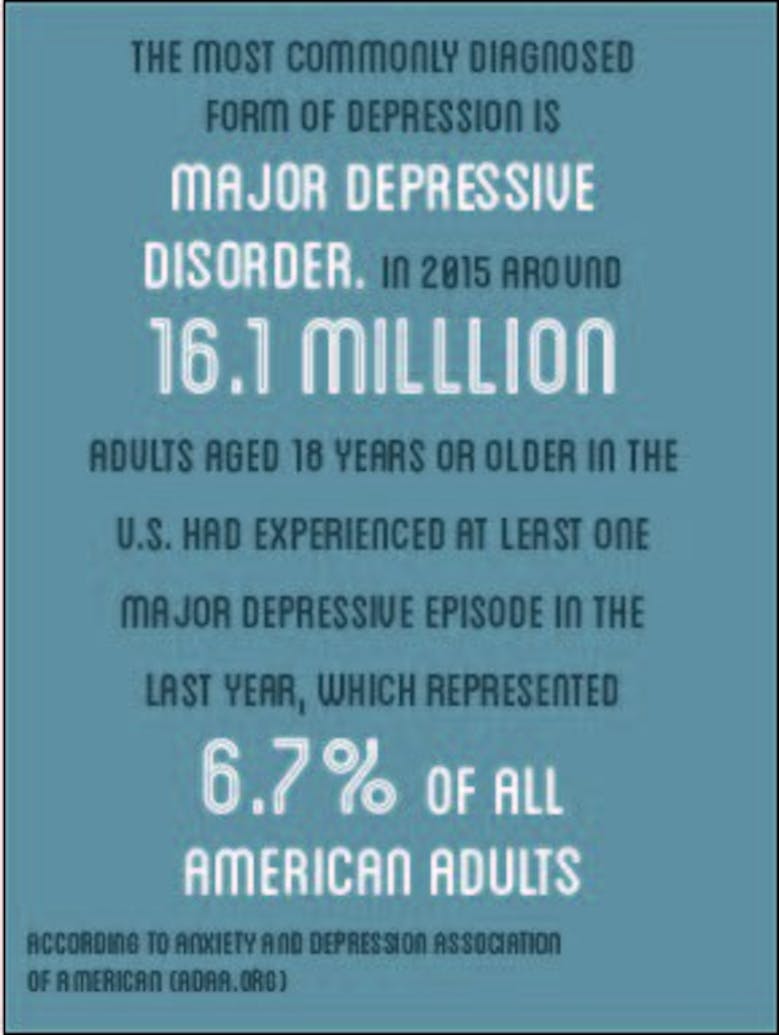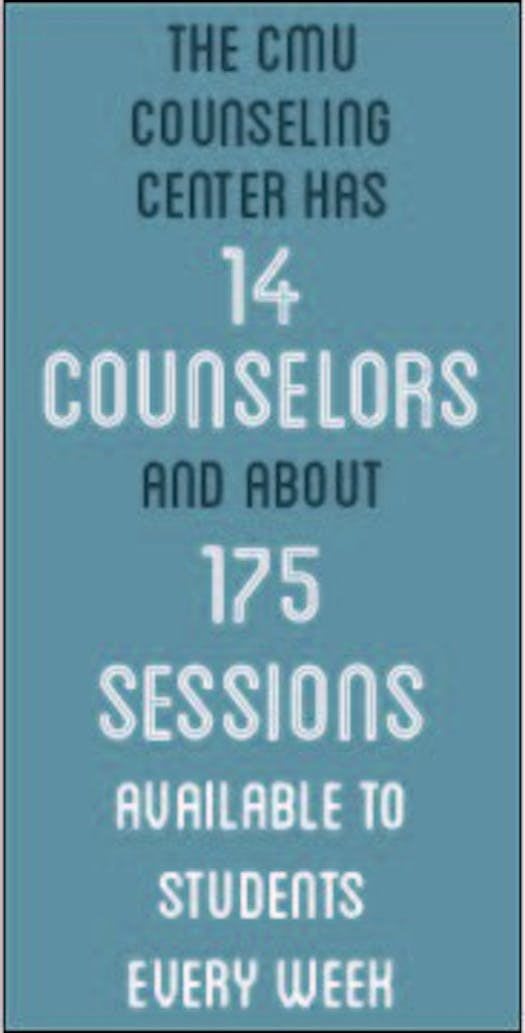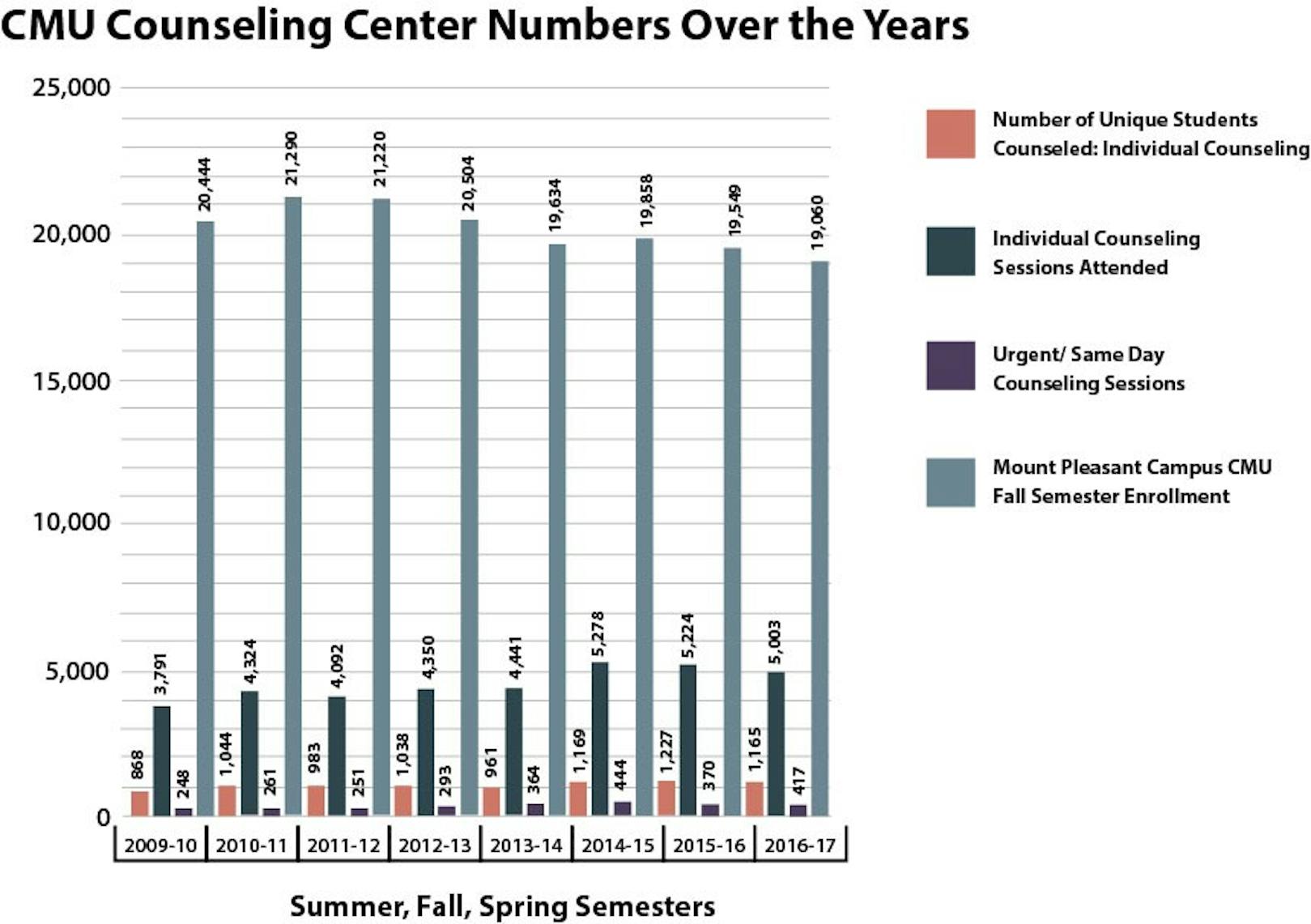Burning out: Students share feelings of heightened stress at the end of fall semester
Paige Bentley puts a lot of pressure on herself. The Canton junior participates in the CMU dance team and has a full schedule of classes with the Honors College. She holds herself to very high standards, which means she often feels stressed out.
"(It begins with) lack of motivation and sleepiness,” Bentley said. “When I get really stressed, I get really bad insomnia.”
As week 10 of the semester begins, her busy schedule, homework and lack of sleep is leading Bentley to her breaking point.
She is not the only one.
Hart senior Bayley Vela, said she feels stress-induced sickness that makes her body ache.
These students aren’t outliers.
The stretch of time between Labor Day and Thanksgiving without a break comprises exams, projects, papers homecoming and the beginning of gloomy weather that takes a toll on mental health. This leads to something more commonly called burnout.
For those staffed at the counseling center or working in the psychology department, burnout is quickly becoming one of the top reasons students seek help.
Burned out
Amanda Lopez, director of the Psychological Training and Consultation Center, said she usually sees a state of high distress in students a third of the way through the first semester. She defined this state as an “increase in demands and a decrease in coping skills for the ability to manage whatever those demands are.”
“If we’re talking about semester and academic work, it would be an increase in projects and exams and not (having) enough time to take care of themselves or to use those skills to reduce anxiety and stress,” Lopez said.
Burnout is a byproduct of high levels of anxiety and stress. Anthony Voisin, associate vice president of Student Affairs, said the Central Michigan University Counseling Center Services are seeing higher numbers of students in need of an appointment.
Melissa Hutchinson, interim director of the Counseling Center said as of Friday, Nov. 17 the waiting list to see a counselor was 65 people. According to Hutchinson, two weeks ago the list was nearly double at 108.
This number is up from last year, when the waiting list consisted of 36 students on Oct. 19, 2016.
Voisin said the most common issues students have are centered around depression and anxiety. He said there seems to be a mix of students who are already diagnosed and those who have yet to receive a diagnosis from a professional.
“It may be the availability and accessibility of psychiatrists and therapists and counselors, better diagnosis,” Voisin said. “(Students) are just more comfortable, so we see more now. The numbers are higher (because) the high point has always been in the fall.”
According to the Anxiety and Depression Association of America, the most common diagnosis of depression is Major Depressive Disorder. In 2015, about 16.1 million people age 18 or older have experienced one major depressive episode in the last year, which is 6.7 percent of all American adults.

When students enter this stressful state, Lopez said, it can have a negative psychological affect. With students not taking care of themselves, she said it can result in worse focus and concentration skills.
Lopez said factors contributing to the negative affect are lack of sleep, not enough physical activity and an unhealthy diet.
“Insomnia, trouble focusing and irritability can all affect their performance,” Lopez said. “As (students) are studying more (and) completing more projects, they’re not taking care of themselves as much. They’re not able to study and retain that information as well. So they may perform more poorly on exams than what they would have if they would have been taking care of themselves.”
Lopez said if students look to procrastinate when stress builds up, it’s due to fear and “being in their head too much.” She said a remedy is setting realistic goals they’ll be able to follow through with.
“There’s this feeling of impossibility,” she said. “It’s kind of a ‘psyching themselves out.’ They’re talking themselves out of doing it because they don’t think they’re going to do it well, or they’re not going to be able to do it according to their expectations.”
When Cheboygan junior Elle Sawyer starts to procrastinate, she knows the stress of school is beginning to build up.
“At the beginning of the year I’m really gung-ho about getting things done early,” Sawyer said. “At this point in the semester I’m like, ‘I have this homework due at midnight — let me start it today’.”
Sawyer said exams and calculating final grades for classes are at the root of her stress.
These deadlines and exam periods are also what give Laingsburg sophomore Caleb Norriss anxiety, which leads him to what he defines as being burned out — “stumbling around, tired all the time and no motivation to do any work.”
“I really know I’m getting to that point when my assignments are starting to stack up and I’m realizing how few weeks I have left before the end is here,” Norriss said.
According to Voisin, the end of the fall semester is when the number of patients for the Counseling Center tends to reach saturation.
“Students, primarily freshmen, are dealing with an awful lot of stressors and anxiety and new experiences they didn’t have to deal with prior to attending a college,” he said.
“Roommates, (being) away from home, new experiences, classes are new, all the independence that comes with being in college. I think all those things add up and continue to build, especially in the fall.”
Resources on campus
The CMU Counseling Center Services is a resource for students in time of need, but it will likely be booked during the end of first semester — with a wait of up to a week.
The Counseling Center is a free resource on campus available to students. To make an appointment visit the office in Foust Hall room 102, call 989-774-3381 or email counsel@cmich.edu.
The Counseling Center has 14 counselors on staff, which includes temporary counselors brought in for busy times like the end of first semester, and a Sexual Aggression Peer Advocates counselor. In a week, the center has about 175 sessions available to students.

However, Voisin said it is still never enough.
Although students on the waiting list may not be consulted immediately, Hutchinson sends students a weekly update on their status of the list and resources to help deal with stressors.
Voisin said in waiting list emails, the contact information for Listening Ear is always included. Listening Ear is a 24/7 crisis line located in downtown Mount Pleasant. The service offers trained individuals to answer calls and talk people through their issues.
Listening Ear also has a contract and agreement with CMU. If there is an emergency situation with a person, Listening Ear will immediately contact the CMU Counseling Center, Voisin said.
Although enrollment has declined in recent years, Voisin said the number of appointments for the center increases every year.

The Counseling Center is considered “short term” — students will only meet with a counselor a few times during the course of the semester, but the center aims to refer students to counselors in the community if needed. Sessions usually last 45 minutes to an hour.
With a high demand, Voisin said the “stigma” of meeting with a counselor is no longer as big of a deal to students.
“I think there are very good reasons you can point to why students are more comfortable meeting with counselors,” he said. “When I was in college, I didn’t know many students were going to the Counseling Center. I didn’t know about it. Now it’s much more acceptable. That’s kind of a recent phenomenon in the last 10 years.”
In 2014, one in five American adults experienced a mental health issue, one in 10 young people experienced a period of major depression and one in 25 Americans lived with a serious mental illness, according to mentalhealth.gov.

“That’s what we’re seeing, that’s the number one, anxiety and depression,” Voisin said. ”(Students) are needing some help navigating and getting through those times when everything piles on.”
For the Psychological Training and Consolation Center, which is a free resource open to students and the community, Lopez said anxiety and depression are also the two most common disorders they treat.
Students stress relief
With academics, being the desk manager of Merrill Residential Hall and belonging to different registered student organizations, Sawyer emphasized the importance of taking time for herself to relax.
“I like to just be by myself and get away from everybody,” she said. “Whether it be reading or watching Netflix, something simple like that. Just if I’m away from everybody and alone, then that’s good for me.”
She said when work begins to pile up, she will separate assignments so she doesn’t have to complete them all in one sitting.
“I would advise (other students) to break everything up,” Sawyer said. “Even though maybe I don’t follow that, sometimes that’s usually what I like to do. It’s a lot less stressful.”
Bentley, who is on the CMU Dance Team, keeps herself busy with early practices and late night games. She said staying organized is crucial to her.
“I keep a bullet journal, (which is) a planner— but your life is in it essentially,” she said. ”(It’s) kind of like a time schedule. (I have to) write everything down.”
Bentley said her dance team practices and workouts help to relieve stress, but giving herself time to relax is essential.
“I give myself time at night to sit there and do nothing,” she added.
Emphasizing self care, Lopez said students should make sure to take time each day for a break: either relaxing, socializing with friends, eating something healthy or taking a nap.
She stressed the importance of utilizing campus resources in times of need.
“Choose somebody to reach out to,” she said. “If (students) make that first step, we can connect them to everybody else they may need to connect with on campus to succeed.”
Vela, who is graduating this year, said when she’s not preoccupied with school work, she is focused on the stress of applying to and getting into graduate school. To relieve herself from this, she will make sure she has alone time for herself.
Even with the feeling of built up stress, Norriss has optimism on how to persevere.
“Take a day and make a plan for the rest of the semester,” Norriss said. “Just taking that time to recenter yourself and figure out what you need to do each day, make a checklist will really help out, I’ve been using that most of the semester. Don’t let it sit for too long and (don’t) let it stress you out that much.”





